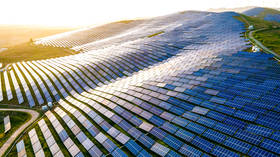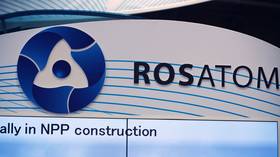Russian energy giant building solar power plant in Africa

The wind energy division of Russia’s energy giant Rosatom, NovaWind, has begun construction of a 200 megawatt (MW) solar power plant in Mali, according to Energy and Water Resources Minister Bintu Kamara.
The facility, which will extend over 314 hectares of land in Sanankoroba, near the capital, Bamako, is the largest in the West African subregion, the minister said in an interview with the national broadcaster ORTM on Friday.
“[It] will make it possible to significantly reduce the electricity shortage currently present in the country,” Kamara stated.
Presently, 70% of Mali’s electricity is produced from thermal plants.
According to latest World Bank data, approximately half of the country's 21.9 million people have access to electricity. The former French colony’s authorities have committed to increase access to 90% by 2036, with urban access at 100% and rural access at 55%.
During the signing of the agreement with NovaWind for the photovoltaic solar power plant in March, Malian Minister of Economy Alousseni Sano reportedly said that relying on thermal power was costly and has weighed heavily on the country’s finances.
According to NovaWind’s director Grigory Nazarov, the solar plant, which will cost €200 million ($217 million), will increase the Sahel nation’s electricity production by 10%, TASS reported.
Construction work will take a year; the station is expected to operate for two decades. It will be under the full control of Mali’s Ministry of Energy ten years after it is inaugurated for operation, the outlet added.
The Malian government is cited by local media as saying the collaboration with Russia on the solar project “represents a significant step towards diversifying the Malian energy mix and reducing its dependence on fossil fuels.”
Mali’s military government has repeatedly hailed Russia as a “strategic and sincere partner” after severing ties last year with the country’s former colonizer, France.
Last October, Bamako signed an agreement with Moscow to develop civil nuclear power.
In March, the Sahel state and its ally Burkina Faso, along with Algeria, signed several agreements for developing nuclear energy cooperation with Rosatom, on the sidelines of the 13th international ATOMEXPO exhibition and forum in Sochi.













